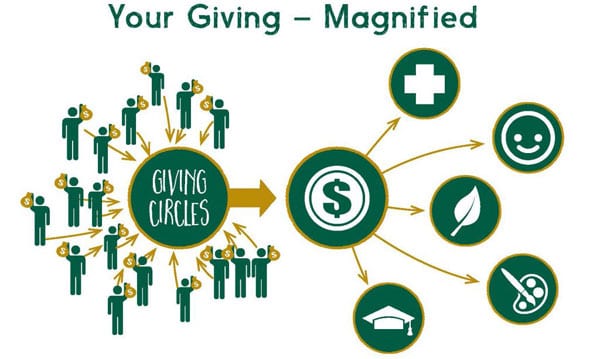
December 7, 2018; Philadelphia Inquirer
As we have noted at NPQ, giving by donors of modest means in the United States is in decline. And, it appears that the decline of donors of modest means has also hurt the nonprofits that depend on their donations, as NPQ’s Keenan Wellar recently explained. Among other things, this has led NPQ to call for the reinstatement of a universal charitable deduction to even the scales.
There is, in short, not a lot of good news out there for donors of modest means, but one bright spot and an important counter-trend, as Ronnie Polaneczky covers in the Philadelphia Inquirer, is the proliferation of giving circles.
As Polaneczky writes, “It’s time for the lesser-heeled to reclaim the word [philanthropy], which means ‘a lover of mankind.’ It’s not as if only the stinking rich use their time, talent, and money for the betterment of others. Plenty of other Philadelphians do, too.”
NPQ has noted the growth of giving circles before, a trend that has been boosted by the ability to use online tools to maintain “back-end” accounting functions. One study founded that the number of giving circles nationwide tripled between 2007 and 2016.
In giving circles, notes Polaneczky, donors raise money collectively and then vote to disburse it to mission-aligned recipients. The money involved is still modest, but it is growing. A 2017 study estimated that giving circles may have disbursed as much as $1.29 billion in their entire history, but, naturally, this pales compared to last year’s one-year giving total of $410 billion.
Still, as Polaneczky notes, giving circles can be important—both as revenue for local causes too small for philanthropy to notice, as well as for the donors. As Polaneczky puts it, “For members, the experience can be identity-changing.”
As Polaneczky explains:
Take Madge Rothenberg of Haverford, who is copresident of Impact100 Philadelphia, a 387-member women’s giving circle.
Sign up for our free newsletters
Subscribe to NPQ's newsletters to have our top stories delivered directly to your inbox.
By signing up, you agree to our privacy policy and terms of use, and to receive messages from NPQ and our partners.
Last year alone, each of Impact100’s members donated either $1,150 (for older members) or $575 (for ages 21 to 35) to award five grants: three for $100,000 and two for $43,500.
The intentionality of the process—the vetting of proposals, visits to potential fundees’ sites, hours of thoughtful debate with passionate circle members in five separate committees—has changed Rothenberg’s self-perception.
“I used to think of myself as a donor,” says Rothenberg, who’d annually write checks to her college alma mater and give $50 gifts to this or that cause. “But I didn’t really know where the money went, or it felt like a drop in the bucket.
“Now I see myself as a philanthropist—I’m part of something bigger. I feel invested in the success of the nonprofits we support.”
Impact 100’s entry level, at $575 for young donors and $1,150 for older ones, is still pretty steep. But barriers to entry for some giving circles are lower. For instance, the Asian Mosaic Fund Giving Circle has 50 members who donate at least $50 a year. This raises enough to make annual grants of $5,000 each to nonprofits that support the region’s Asian community.
“Many of these organizations are ignored by mainstream foundations—they’re invisible,” says Peter Van Do, who chairs the Philadelphia-based giving circle. “Less than one percent of the country’s charitable-giving dollars support Asian American causes, even though Asian Americans make up six percent of the population.” Since forming in 2010, the circle has distributed almost $130,000 to local groups like the arts community Laos in the House.
New circles continue to emerge. For instance, Kevin Dow is a cofounder of the Philadelphia Black Giving Circle, which, Polaneczky notes, was founded “after a 2016 report showed that black-led Philly nonprofits received fewer foundation resources than did their white-led counterparts.”
“We’ll make our first grants in 2019,” Dow explains. “This is only the beginning.”—Steve Dubb












